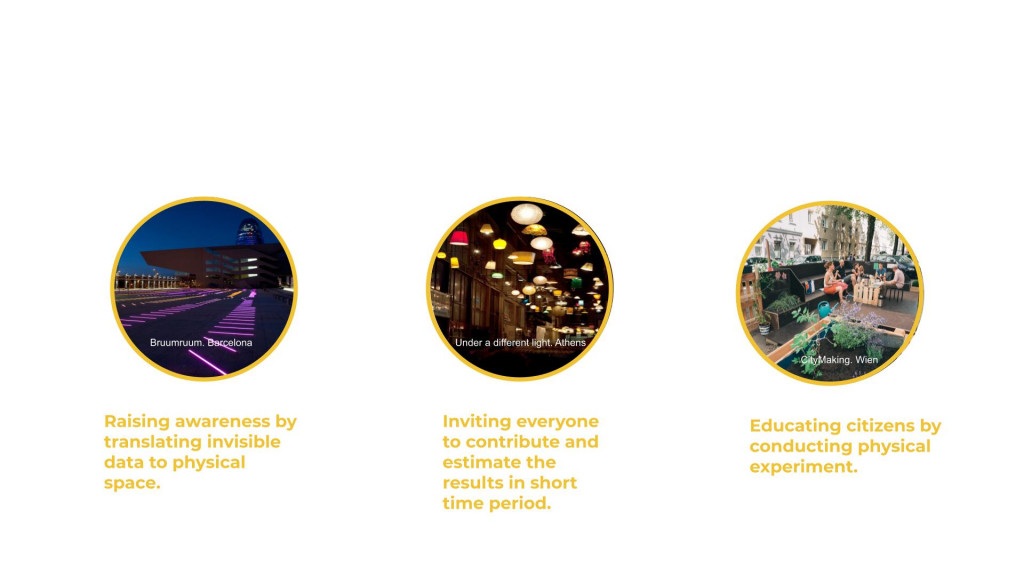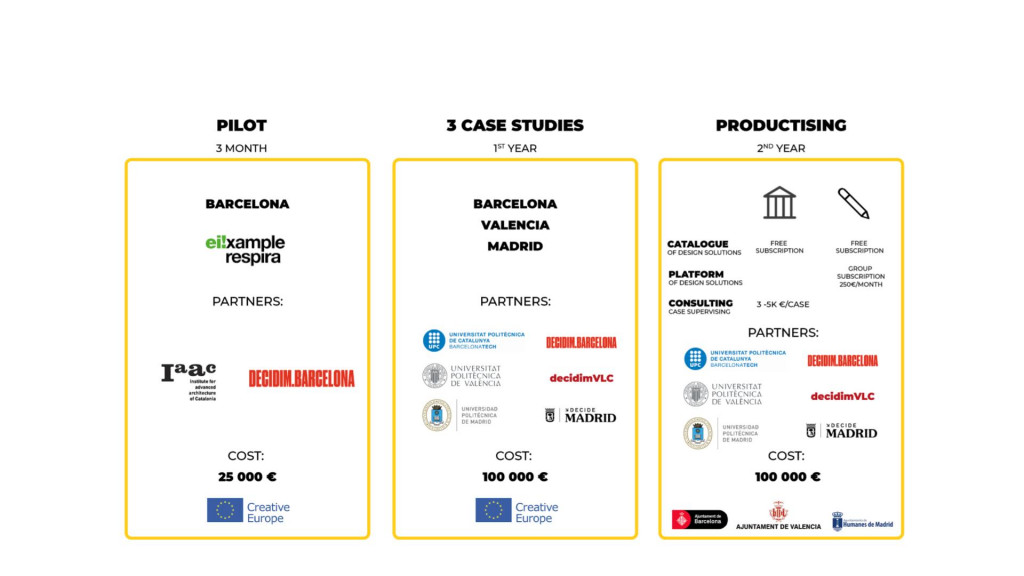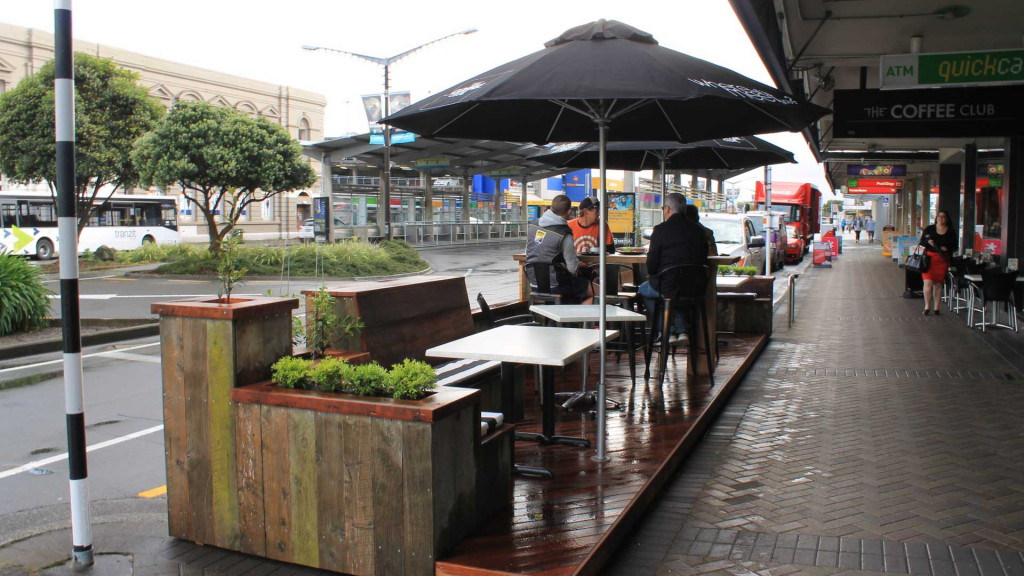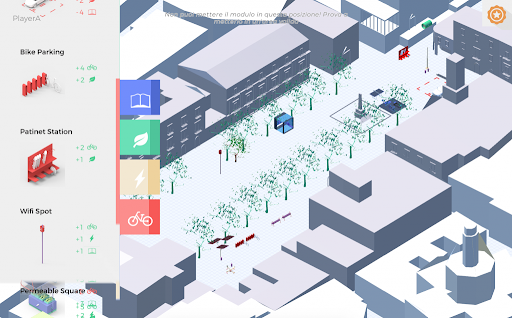WHAT IS IT ABOUT?
Do you remember last time when you as a citizen took part in decision making concerning public space? The majority of people have never done that. Today, all developed democracies around the world make an effort to involve their citizens in deliberation about diverse spheres of life. However, most of them face the same issue. How to engage? And achieve representativeness. DecidimBarcelona is the example. It operates for 3 years and provides different spheres of urban issues in that every citizen can make the proposal, vote, deliberate etc. However, today only 2.5% from the whole Barcelona population took place. People are not interested. Some of them are not able to afford participation because of inappropriate infrastructure, others don’t understand the goal and can not feel their contribution so, as a result don’t want to waste their time. According to OECD, in 44% of participation processes citizens receive remuneration of expenses coverage. So, we tried a lot of different ways to achieve engagement – nothing worked well enough.
WHAT HAS BEEN DONE?
There are several ways to tackle engagement problems. Here we will observe some successful projects. As we understood, it is very valuable for all participants to see the impact of their contribution. By impact we understand something that can be seen/felt in a short time period, not in a 2-5 years.
CityMaking Wien.
A good example that provides people with short-term effects of their efforts – CityMaking Wien. Project aims to demonstrate to people how parking lots in a city can be converted to public space. Participants can choose a specific parking space and occupy it with a self-constructed public space module. So, citizens are able to see and use the result of their participation. Moreover, they get some new knowledge and physical experiment experience. The only disadvantage is that the platform does not allow people to monitor the effectiveness of their urban proposal. It is impossible to estimate how popular or useful it is. That project relies fully on citizens themselves. They are initiators and beneficiaries.
SuperBarrio.
Every participation has to be meaningful. It does not make any sense to gather professional’s opinions from people who do not know anything about the issue. So, people have to be informed and educated in order to contribute to a solution.
Superbarrio is a smartphone application that works as a game. Originally it was developed to gather proposals and opinions from SuperBarrio residents. User is proposed to fulfill his own barrio with necessary facilities such as parking lots, playgrounds, furniture, etc. The advantage of that game is that it also educates users. Each element that can be placed in the barrio has its own advantages and drawbacks. So, the user has to decide what is the best and optimized proposal. However, application as it is a digital infrastructure is not accessible for everyone. Some social groups are excluded from the participation process.
Superbarrio includes citizens as data source and main beneficiaries, designers as initiators or mediators, and government as final decision makers.
So, education, understandable goal, social coverage, ability to estimate impact are some of those ingredients that can help to achieve engagement.
SOLUTION
The proposed approach is a for profit social impact consulting platform that constructs strong communication between stakeholders to tackle weak participation issues by: raising awareness, educating citizens, giving everyone an opportunity to contribute and measure impact.
Collaboration
There are 3 stakeholders: municipal authorities, design schools and small communities.
Each that gets its own benefit from collaboration. Design schools get an opportunity to work with the real case study. Communities get knowledge and experience, and city authorities achieve engagement and broader social coverage in terms of participation processes.
In order to make people interested in solving some problem, that problem should be very close to people. People are more likely to try to solve small understandable problems than global issues. So, design schools are responsible to find communities with their local problems and help them in finding appropriate solutions. City authorities have to digitally and physically facilitate that process.
Raising, educating, giving
The process itself includes 3 stages.Raising awareness is going to be achieved by translating digital data that is not available for everyone to physical space. So, everyone who is walking through the street can receive the message. During co-design stage citizens with designers will elaborate different solutions. Those solutions will be tested physically in space and the impact will be sent back to the digital environment. Existing participation platforms will facilitate the digital part. Then the most effective will be implemented. 
The non-profit consulting will help authorities to construct communication with communities and design schools to start the coherent process of educating and engaging citizens. At the same time it will allow authorities to revive mechanisms that they already implemented such as participation platforms.
MARKET
The total available market, according to OECD includes 18 countries and the EU – those who practice the deliberation process. As the process works in a small city scale the future goal is to cover Spain (44 cities). The starting point is Barcelona. The possible collaborations can be installed between City council Barcelona, IAAC and Decidim platform. The first case study is the Eixample respira community with air quality problems.
IMPLEMENTATION
As we already indicated the pilot project that will take place in Barcelona will spend 3 months and can be funded by the Creative Europe program. The second stage starts from extending the project for 3 cities: Madrid, Barcelona and Valencia and will take around the year. From that stage additional funds from city councils will be achieved as a payment. After 3 case studies, consulting launches a platform for design schools that will help to choose the best ways of data translation into physical space and experiments conducting. At the same time the catalogue of best practices and decisions will be available for everyone as an educational material. That time consulting will be fully paid by city councils. Organization starts to expand and enlarge territorial coverage.
TEAM
The team starts with 5 people. 3 of them work on construction dialogue with stakeholders. The software engineer works with data analytics and translation. The hardware engineer is responsible for physical experiments and data representation.
So, we invite you to collaborate and become active citizens together.
Power for Citizen is a project of IAAC, Institute for Advanced Architecture of Catalonia
developed at Master in City and Technology, Business Innovation Seminar
in 2019-2021 by:
Students: Linara Salikhova
Faculty: Davide Rovera

